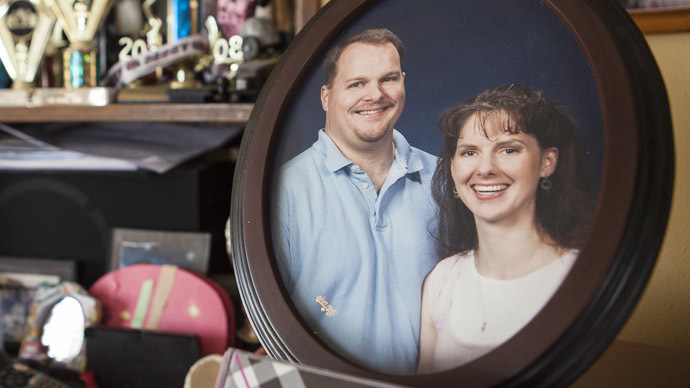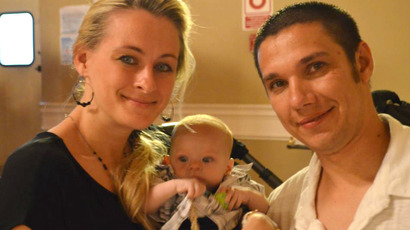Underground adoption network lets new parents 're-home' children online

An American couple allegedly turned over custody of their adopted Liberian daughter to unfit parents, according to an investigative report on an underground adoption network for unwanted children that operates via online groups.
Todd and Melissa Puchalla of Wisconsin struggled for two years to raise Quita, a troubled teenager they had adopted from the West African nation. However, after failing to cope with Quita’s health and behavioral disorders, they posted an advertisement for her adoption online.
Within weeks, the couple had packed Quita into their car and made the six-hour drive from their home to Westville, Illinois, where – on October 4, 2008 - the young girl would meet her new family.
Quita’s case and others like it are the subject of a new report from Reuters, which chronicles the growing world of underground adoptions, or “re-homing.” Parents who regret adopting their children simply post an ad for the child on the internet and grant custody to new parents, all without the necessary safety oversight or background checks provided by government agents.
Quita met her new parents Nicole and Calvin Eason, both in their 30s, in a trailer park. The meeting lasted for just a few hours and included the signing of a notarized statement which granted the Eason’s guardianship over Quita. There were no attorneys, welfare officials, or agents from Child Protective Services on hand.
“People that are around me think that I am awesome with kids,” Nicole Eason told Mrs. Puchalla, although it was later revealed that a document from a social worker attesting to her parenting skills had been forged.
Authorities would later say the Eason’s were forced to give up at least one of their children and that the “parents have severe psychiatric problems as well with violent tendencies." The couple had also been accused of sexually abusing children they were babysitting, although charges were never filed.
Quita said the Eason’s forced her to sleep with them in their bed on her first night and that Nicole Eason slept naked. Meanwhile, the Puchalla’s spent two weeks trying to contact Quita through the Eason’s without success. They eventually called the police, who took Quita from her new home and sent her back to Wisconsin on a bus by herself.
Reuters journalists scoured over 5,000 posts on a Yahoo message board, revealing the practice known as private re-homing - a title normally designated to pet owners who find a new home for their dog or cat. A similar message board titled “Way Stations of Love” was found on Facebook.
A spokesman for Facebook said “that the internet is a reflection of society, and people are using it for all kinds of communications and to tackle all sorts of problems, including very complicated issues such as this one.”
Legally, US parents who wish to adopt children must do so through the courts and potential parents must undergo a series of background checks. However, participants of private re-homing have exploited a loophole by filling out a simple “power of attorney” document which puts their child in the care of another adult.
“We have a 13 month old adopted son who has special medical needs,” one notice on the Yahoo board stated. “We are very overwhelmed and feel this little guy would do better in a family who had the time and emotional resources to offer him."
The document can allow the new parents to enroll the child in a new school or obtain government benefits. But it also pushes the child outside the care of welfare authorities, improving the chance that abuse will occur.
Most of the children fall between six and 14 years old and are frequently from nations like Russia, China, Ethiopia and Ukraine, where laws have made it difficult for American parents to adopt a child.
“This is a group of children who are not being raised by biological parents, who have been relocated from a foreign country,” Michael Seto, an expert on the sexual abuse of children at the Royal Ottawa Health Care group in Canada, told Reuters. “You’re talking about a population that appears to be especially vulnerable to exploitation.”
No charges were filed against the Eason’s or Puchalla’s in Wisconsin or Illinois. The Eason’s now say that the method offers prospective parents a chance at drawing government benefits and a way around welfare monitors. Nicole Eason said that “you take your chances” when forgoing the price tag for a new child.
Quita, now 21, told reporters that she still cannot believe what happened. “How would you give me up when you brought me to be yours?” she stated.














